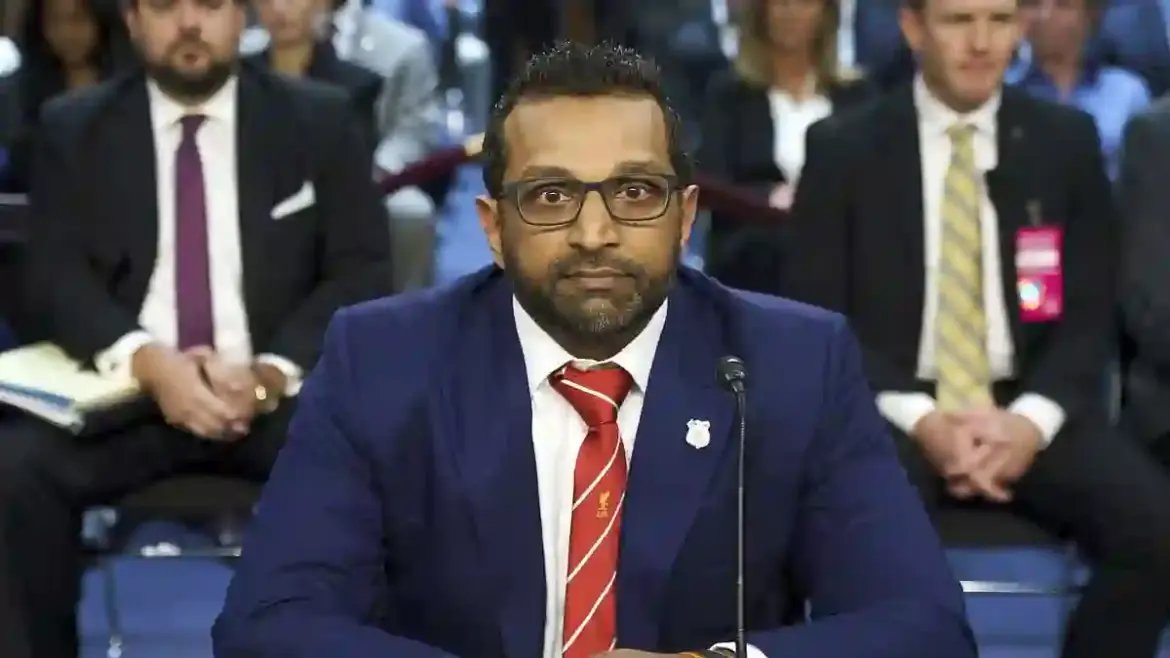What began as a routine FBI oversight hearing before the Senate Judiciary Committee quickly shifted into a debate over transparency, accountability, and political violence in America.
At the center of it all was FBI Director Kash Patel, who defended his decision to live-post updates during the manhunt for Charlie Kirk’s alleged assassin.
Patel argued that without his real-time updates, the suspect might never have been caught so quickly.
But critics in the Senate say his eagerness to broadcast every step of the investigation caused confusion and even risked undermining the case.
The Fast Arrest That Sparked Controversy
Charlie Kirk, the conservative activist, was tragically shot in the neck during an open forum debate at Utah Valley University on September 10.
Within just 33 hours, the alleged gunman, 22-year-old Tyler Robinson, was taken into custody.
Patel credited the speed of the arrest to transparency.
According to him, the FBI’s decision to release enhanced video and images of the suspect led to Robinson’s own father recognizing him and alerting authorities.
“That is the FBI working with the public,” Patel told senators, emphasizing that transparency was critical to the outcome.
The Social Media Misstep
But not everything went smoothly. On the day of the shooting, Patel announced on X (formerly Twitter) that the “subject for the horrific shooting today that took the life of Charlie Kirk is now in custody.”
Just 90 minutes later, he posted an update that the individual had been released after questioning.
The back-and-forth ignited backlash. Critics accused Patel of being too quick to take credit, while creating unnecessary public confusion.
Senate Judiciary Ranking Member Dick Durbin didn’t hold back, accusing Patel of violating one of the golden rules of law enforcement: “At critical stages of an investigation, shut up and let the professionals do their job.”
Patel Stands His Ground
Despite the criticism, Patel insisted that his approach worked.
He admitted the wording of his initial post could have been “a little better,” but doubled down that transparency mattered more than avoiding backlash.
“Do I regret putting it out? Absolutely not,” Patel said, stressing that his goal was to show the FBI’s work in real time.
He also challenged anyone to find a director who had been more open with the media about ongoing investigations.
Social Media, Radicalization, and Free Speech
Beyond Patel’s conduct, the hearing turned into a broader conversation about online radicalization and political violence.
Senators pressed Patel on how to balance protecting free speech while cracking down on threats made online.
Sen. Lindsey Graham summed it up simply: “Free speech doesn’t allow you to go on the internet and basically incite somebody to kill another person.” Patel agreed with that point.
The FBI revealed that Robinson had been part of an online Discord group chat where members allegedly discussed killing Kirk.
Discord has pushed back, denying its platform was used to plan the attack.
Still, Patel confirmed the bureau is investigating other groups linked to Robinson’s radicalization.
The White House Weighs In
President Donald Trump also spoke out, saying he believed Robinson was radicalized online.
Asked whether the suspect acted alone, Trump noted: “I can tell you he didn’t work alone on the internet because it seems he became radicalized on the internet.”
Attorney General Pam Bondi added that while social media companies face scrutiny, parents must also take more responsibility for monitoring what their children are doing online.
An FBI Director Under Fire
Patel’s transparency strategy has drawn both praise and condemnation.
Some see it as a refreshing break from the FBI’s historically secretive nature, while others argue it risks the integrity of investigations.
Senator Durbin went as far as calling Patel “arguably the most partisan FBI Director ever.”
Patel, however, shrugged off the criticism, reminding senators of his 16 years of service. “I’m honored to be the 9th director of the FBI. I’m not going anywhere,” he declared.
What Comes Next?
The FBI continues its investigation into Robinson and possible accomplices.
Meanwhile, Patel shows no signs of backing down from his transparency-first approach, even as the debate around it grows louder.
The bigger question, however, goes beyond Patel: how should America handle the rising tide of political violence fueled by online radicalization, without stepping on the core principles of free speech?
